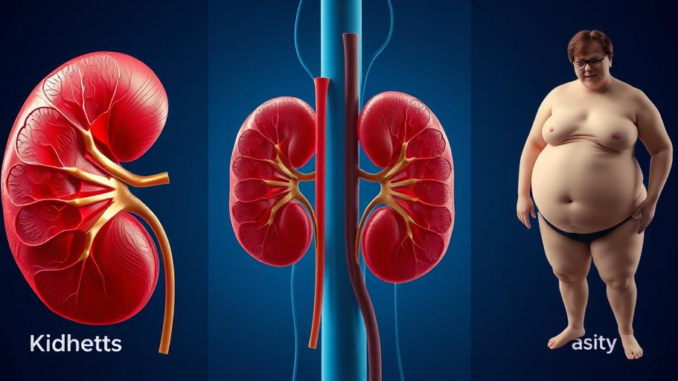
Summary
New research reveals that popular diabetes and obesity drugs, known as GLP-1 receptor agonists, may also protect against kidney disease. Studies show these drugs can reduce kidney deterioration and failure, regardless of diabetes status. This breakthrough offers a potential new treatment avenue for chronic kidney disease.
Safeguard patient information with TrueNASs self-healing data technology.
Main Story
Okay, so you’ve probably heard about those diabetes and obesity drugs, right? The ones like Ozempic and Wegovy? Well, get this – it turns out they might be pretty good for your kidneys too. We’re talking about GLP-1 receptor agonists, and the buzz around them is growing, not just for managing blood sugar and weight, but also for potentially protecting against kidney disease progression. I mean, who saw that coming?
Essentially, these drugs mimic a natural hormone, GLP-1, which does a bunch of cool stuff. It boosts insulin, lowers blood sugar, slows down digestion, and helps you feel full. That’s why they’re so popular for diabetes and weight loss. But lately, researchers have been digging deeper, trying to figure out exactly how these drugs affect kidney health. And what they’ve found is quite interesting.
Take, for example, a study in The Lancet Diabetes & Endocrinology. It showed that GLP-1 receptor agonists could actually lower the risk of kidney issues, even in people without diabetes. Yep, you read that right. The study pointed to a pretty significant 19% reduction in the combined risk of kidney failure, worsening kidney function, and death from kidney disease. It’s kind of a big deal.
Then there’s another study in Nature Medicine that focused on semaglutide, which is the active ingredient in Ozempic and Wegovy. The results? Semaglutide appeared to offer strong protection against both kidney and heart complications in people with chronic kidney disease and type 2 diabetes. So, you know, a double whammy of protection.
Now, here’s the kicker. Experts think this kidney protection might not even be directly tied to blood sugar control. How crazy is that? The theory is that these drugs might reduce inflammation in the kidneys and boost blood flow to them. But, and this is important, the exact mechanisms are still under investigation. Still, this could be a game-changer for chronic kidney disease (CKD), which affects a staggering 850 million people globally.
Let’s face it, currently treatment options for CKD aren’t fantastic. Often, the disease progresses to kidney failure, which means dialysis or a transplant. If GLP-1 receptor agonists could actually slow down or even prevent this progression, it could dramatically improve the lives of so many people. It’s a pretty hopeful prospect, isn’t it? It’s like finding an unexpected superpower in a drug we already knew about.
Of course, more research is definitely needed. We need to figure out the best way to use these drugs for kidney protection. Think about it, what’s the ideal dose? What are the long-term effects? How do they work in different groups of patients, like those with varying stages of CKD or those without diabetes? It’s all still being figured out.
All things considered, these findings are a real step forward. GLP-1 receptor agonists, which are already used for diabetes and obesity, might become a key part of how we manage CKD in the future. I think, while we shouldn’t get ahead of ourselves, this research offers a genuine reason for optimism. It’s opening up new avenues of treatment and, fingers crossed, could lead to a better quality of life for a lot of people.
So, yeah, keep an eye on this space. This dual benefit – managing diabetes and obesity while protecting kidneys – could really reshape the future of kidney disease treatment. It could offer real hope to millions struggling with this challenging condition, and honestly? I think that’s worth getting excited about.


So, Ozempic might save my kidneys while I’m busy avoiding diabetes and fitting into my skinny jeans? Suddenly side effects like nausea don’t sound so bad. I wonder if insurance covers preventative kidney glamour now?
That’s a great point about preventative care coverage! It’s definitely worth checking with your insurance provider to see what’s covered in terms of kidney health. Hopefully, as research progresses and the benefits become clearer, more preventative measures will be covered. Thanks for bringing this up!
Editor: MedTechNews.Uk
Thank you to our Sponsor Esdebe
So, GLP-1s help kidneys now too? Guess I’ll just add “miracle cure” to the list of things they’re apparently good for. Is there anything these drugs *can’t* do besides lower my grocery bill?
That’s a funny point about the grocery bill! It’s true, these drugs have shown diverse benefits, and more studies are needed to explore their full potential and limitations. Maybe future research will find a way to make them lower our grocery bills too!
Editor: MedTechNews.Uk
Thank you to our Sponsor Esdebe
Kidney glamour? You’re telling me I could pee rainbows and glitter now, all thanks to my weight loss meds? I’m suddenly way more invested in chronic kidney disease research! Let’s hope it doesn’t clash with my liver’s carefully curated aesthetic.